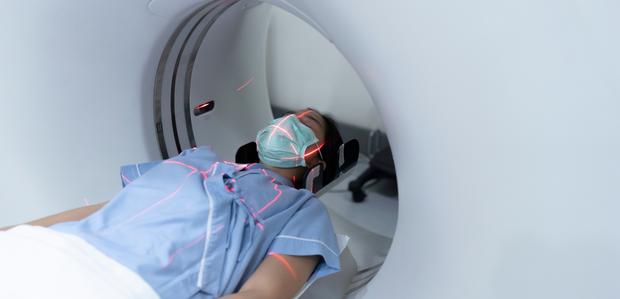Discover the Finest Radiation Oncology Hospital in Chennai

Radiation therapy plays a pivotal role in cancer treatment, and choosing the right healthcare facility is crucial for ensuring the best possible outcome. In Chennai, a city known for its world-class medical services, Gleneagles HealthCity Chennai emerges as the beacon of hope for those seeking top-notch radiation oncology services.
Unraveling the Excellence of Gleneagles HealthCity Chennai
State-of-the-Art Technology for Precise Treatment
At Gleneagles HealthCity Chennai, cutting-edge technology is at the heart of their radiation oncology department. The hospital boasts a formidable arsenal of advanced radiation therapy equipment, including the latest linear accelerators and brachytherapy units. This technology ensures that patients receive highly precise and targeted radiation therapy, minimizing damage to healthy tissue while effectively eradicating cancer cells.
A Multidisciplinary Approach to Cancer Care
One of the key differentiators of Gleneagles HealthCity Chennai is its commitment to a multidisciplinary approach to cancer care. A team of seasoned oncologists, radiologists, and support staff work in tandem to create personalized treatment plans tailored to each patient's unique needs. This holistic approach not only ensures the best possible treatment outcomes but also provides comprehensive support throughout the patient's journey.
Patient-Centric Care
Compassion and empathy are the cornerstones of the patient-centric care offered at Gleneagles HealthCity Chennai. From the moment you step through the doors, you'll be greeted by a warm and friendly staff dedicated to making your experience as comfortable as possible. The hospital's commitment to excellence extends beyond medical treatment to encompass the emotional and psychological well-being of patients and their families.
Accessibility and Convenience
Located strategically in Chennai, Gleneagles HealthCity Chennai is easily accessible to patients from all over the city and beyond. Its proximity to major transportation hubs ensures that patients can reach the hospital with ease. Additionally, the hospital provides ample parking facilities, making it convenient for patients and their families.
Research and Innovation
Gleneagles HealthCity Chennai isn't just about providing top-tier treatment; it's also at the forefront of cancer research and innovation. The hospital actively participates in clinical trials and research initiatives, ensuring that patients have access to the latest advancements in radiation oncology.
Final Thoughts
When it comes to cancer treatment, especially radiation oncology, choosing the right hospital can make all the difference. Gleneagles HealthCity Chennai, with its state-of-the-art technology, multidisciplinary approach, patient-centric care, and commitment to research, stands out as the best radiation oncology hospital in Chennai.
If you or a loved one is facing a cancer diagnosis, you can rest assured that Gleneagles HealthCity Chennai will provide the expert care and support you need on your journey to recovery.
Our Doctors
View all
Dr Rishan T S
Consultant (Radiation Oncology)
MBBS, MD (Radiotherapy)
- What is radiation oncology, and when is it used in cancer treatment?
Radiation oncology is a medical specialty that uses high-energy radiation to treat cancer. It is often used in combination with surgery, chemotherapy, or on its own, depending on the type and stage of cancer.
- Why should I choose Gleneagles HealthCity Chennai for radiation therapy?
Gleneagles HealthCity Chennai is renowned for its state-of-the-art technology, multidisciplinary approach, and patient-centric care. These factors contribute to better treatment outcomes and a more comfortable patient experience.
- Is Gleneagles HealthCity Chennai accessible by public transportation?
Yes, the hospital is conveniently located and easily accessible by public transportation. It's strategically situated to accommodate patients from various parts of Chennai.
- What types of cancers are treated with radiation therapy at Gleneagles HealthCity Chennai?
Gleneagles HealthCity Chennai offers radiation therapy for a wide range of cancers, including but not limited to breast cancer, prostate cancer, lung cancer, and head and neck cancers.
- Are there any support services for cancer patients and their families at the hospital?
Yes, the hospital provides comprehensive support services, including counseling, support groups, and guidance on managing the side effects of treatment. They prioritize the emotional and psychological well-being of both patients and their families.
- How can I get more information about the cost of radiation therapy at Gleneagles HealthCity Chennai?
You can inquire about the cost of radiation therapy and financial assistance options by contacting the hospital's billing department. They can provide you with detailed information about the expenses involved and any available support programs.
FAQ
Why Choose Us
-
Patient Experience
Your care and comfort are our top priorities. We ensure that the patients are well informed prior to every step we take for their benefit and that their queries are effectively answered.
-
Latest technology
The Gleneagles Hospitals' team stays up to date on the advancements in medical procedures and technologies. Experience the Future Healthcare Technologies now at Gleneagles Hospitals.
-
Providing Quality Care
Strengthening lives through compassionate care, innovative therapies and relentless efforts. It reflects in the DNA of our passionate team of doctors and dedicated clinical staff.







